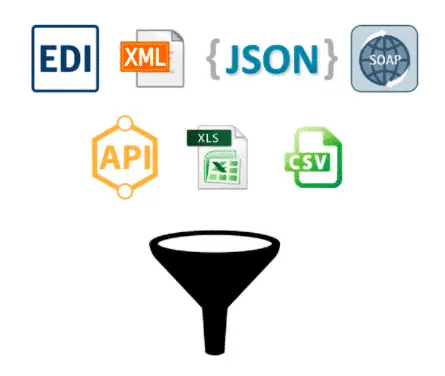How Technology Impacts The Electronic Component Supply Chain
We have broken down the key differences and advantages to both and discussed how these technologies are impacting the supply chain.

API Technology: Transforming the Electronic Component Supply Chain
APIs are transforming businesses across many different industries. Amazon uses APIs to power its e-commerce marketplace, while Uber uses them to manage its taxi and ride-sharing services. APIs form the foundation of the Square mobile payments network, providing consumer-friendly assistance to small businesses of all kinds.
A tool comprised of code and logic, APIs are used to integrate computer systems, allowing direct communication between disparate systems or networks. An API can facilitate data transfer between customers and service providers, or between different departments in the same organization. With proper planning and implementation, an API can help a company by fostering innovation and providing custom solutions that increase productivity and revenue for businesses. API code can be simplified and structured to interact well with other types of software, improving efficiency and saving time and resources.
However, the supply chain remains an area where APIs have not been used to full advantage. Electronics Manufacturing supply chains tend to rely on outdated and inefficient systems that are prohibitive to innovation. Additionally, using a less than cutting-edge solution means an organization misses out on the benefits that technological advances provide.
EDI Technology: the Old Standard
Today’s supply chain management systems often use EDI technology, a tool used to transmit data between systems that has been the standard for supply chain management systems since the 1970s. However, this technology has not been significantly updated to harness the power of internet-driven systems available today.
An overall reliance on outdated technology increases inefficiencies and the risk of human errors as well as the total cost of various stages of the supply chain.
It also limits end-to-end visibility, so that in different areas companies are unable to view the system as a whole or measure the impact of individual actions on the complete supply chain.
Additionally, the use of EDI software, spreadsheets, or other outdated modes of communication to transmit information between parties along the supply chain inhibits innovation. One of the most dominant modern tools at the hands of a forward-thinking organization is big data. Analyzing data from customers, employees, and even connected devices as part of the Internet of Things (IoT) helps a company to make correct decisions in real time, continually improving products and processes and increasing cost savings. Real-time access and decision making are crucial, and the information provided by data analysis can go a long way in helping a company to make the most strategic business decisions. EDI makes it difficult, or even impossible, to utilize modern data analytic for an organization’s supply chains.
Today’s businesses should consider a shift from EDI, or spreadsheet communications, to direct connect systems, which can communicate and transmit accurately and securely in real time.
These connections are rapid and cost-effective with the use of EDI alternatives like supply chain APIs.
API: Modernizing the Supply Chain
Orbweaver Connect is a supply-chain specific API that unifies electronic systems and flat files, taking any input including EDI, SOAP, JSON, XML, or even spreadsheets and databases, and translating it into whatever output format is best suited for purposes of analysis and review. Connect provides a secure and reliable method for sharing data between parties, even when the original data formats are incompatible.
Using the Orbweaver suite, a company can automate business processes along the supply chain and throughout the organization:
- Automate RFQs as a single-entry process, issue and reconcile purchase and invoice orders automatically, and update pricing information with minimal human intervention.
- Channel time and resources to higher-level tasks, such as improving products, processes, and customer service.
- Forward-thinking companies will translate automation into a competitive advantage.
In today’s environment, businesses are required more than ever to be efficient, making immediate decisions in response to a dynamic, ever-changing environment. An API can be an essential tool for supply chain management, providing access to information such as big data analysis, or IoT data, that can be used to make more informed decisions to improve efficiency within the supply chain. Additionally, an API can help a company automate processes, allowing the people along the supply chain to devote time, energy and resources to higher-level tasks.
When it comes to automating your business, don’t let the industry status quo hold you back. Consider the immediate benefits of modernizing your current system and see how APIs can positively impact your organization as a whole.
Request a free consultation with Orbweaver today to learn how you can automate business processes throughout the supply chain.
